Our food system is broken. At the Mark Bittman Future of Food talk I attended, he laid out eight areas we need to fix if we want to secure our food future.
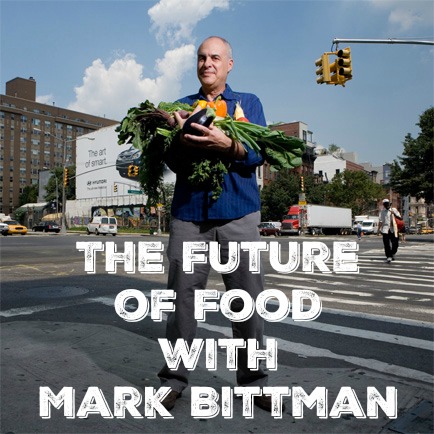
I had the pleasure of attending a Mark Bittman Future of Food talk Thursday evening. The renowned food writer and thinker spoke at the University of Hawaii at Manoa, in Honolulu. It’s pretty exciting to get big name folks here to the islands since it’s far from everything, and few speakres would appeal to me more than Bittman (except Vandana Shiva, she’s pretty rad too!).
Who is Mark Bittman?
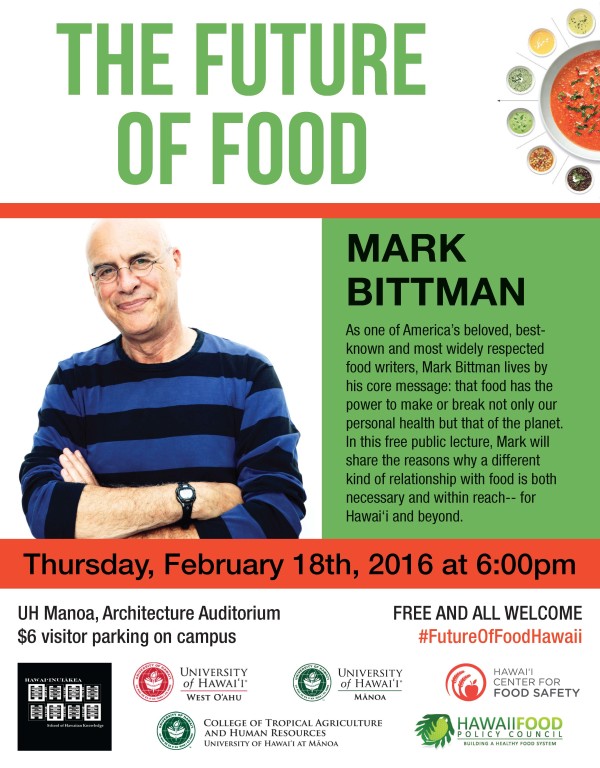 Bittman, a former New York Times columnist, cookbook author and general thinker of all things food and food policy, came to speak about the future of food, and laid out his thoughts about the biggest challenges our food system is facing. I was excited to hear Bittman’s thoughts, because I think he’s pretty smart, yet he presents his work in a down-to-earth way that appeals to folks on the more moderate side of food politics.
Bittman, a former New York Times columnist, cookbook author and general thinker of all things food and food policy, came to speak about the future of food, and laid out his thoughts about the biggest challenges our food system is facing. I was excited to hear Bittman’s thoughts, because I think he’s pretty smart, yet he presents his work in a down-to-earth way that appeals to folks on the more moderate side of food politics.
While he’s perhaps more famous for bringing to light the connection between animal agriculture and climate change, he is not himself a vegetarian. However, he’s a huge proponent of plant-based eating, and created VB6– vegan before 6pm. He describes himself as a ‘lessmeatarian,’ and encourages others that are not quite ready to become vegan to choose a more plant-focused diet for most of the day.
Bittman made a splash recently by leaving his position at the Times to pursue other interests, namely heading up The Purple Carrot, a vegan meal service. He also is a Fellow at the Union of Concerned Scientists and a prolific cookbook writer, many of which are very veggie friendly.
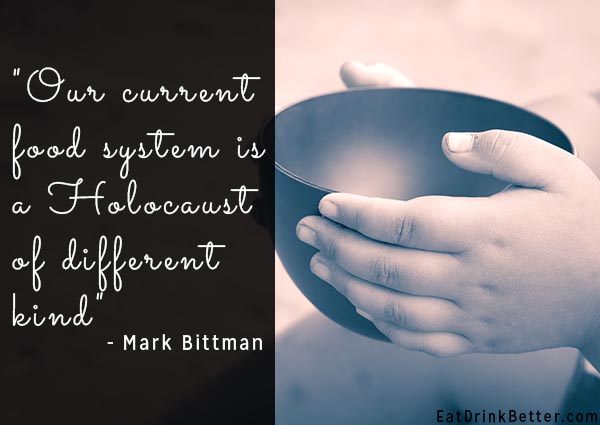
Mark Bittman Future of Food Talk: What are the Biggest Issues?
1. Stop subsidies to processed foods and ethanol.
Corn, soy and other crops are subsidized by the Federal government in a way that makes it profitable to grow these feed crops (for processing, for animal feed, and for ethanol in the case of corn), and yet none of these are actually food. Bittman says reducing or eliminating subsidies is a huge task but needs to be undertaken to make real food farming profitable.
2. Break up Department of Agriculture.
The USDA has a dual mandate to both support farms and promote a healthier lifestyle, which are often at odds. Bittman suggests that a Department of Food be created to separate these two mandates.
3. Eliminate CAFOs.
CAFOs are concentrated animal feeding operations that make horrible lives for animals and terrible food for people. Bittman says for the environmental impacts, torturous animal abuse, and human health outcomes, CAFOs need to be eliminated entirely.
4. Encourage and subsidize home cooking.
We know that cooking at home is better for you, but how can we subsidize it? Bittman suggests a tax on fast food, and programs that help teach people the value of home cooked foods are important to get people cooking again.
5. Mandate labeling beyond GMOs.
GMOs are the big news when it comes to labeling, but Bittman wants to see lots more overall transparency in our food system. He says labeling should address GMO ingredients, country of origin, chemicals, pesticides, and slave labor used in growing our foods.
A related point he makes is the wage issue with food workers. The largest number of low-wage workers in this country work in food– he says that often those that grow, process, and serve our food go hungry, and addressing the wage issue in the US is imperative, especially in the food and farming sector.
6. Remove antibiotics.
The overuse of antibiotics is bad for animals and bad for humans, and it needs to stop.
7. Improve school lunch program
Our kids are facing challenges in a school system that doesn’t value real food. Giving kids real food for breakfast, lunch and snacks is the key to a healthier generation and to kids who are better able to focus and learn at school.
8. Ensure there is enough land and enough farmers for food production.
One of the biggest barriers for younger farmers is the lack of land: incentives need to be shifted to support a more sustainable farming system, which can help ensure food security, job security – and as it becomes more clear that regenerative agriculture is one of the key solutions to climate change– one of the key factors in a better future.
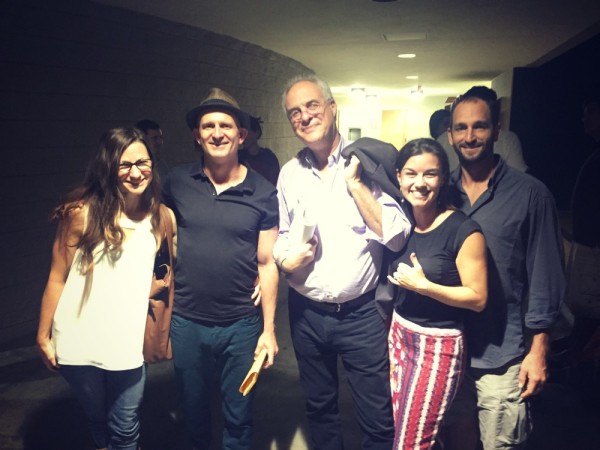
What are the solutions?
One of his main points was that while we have a nascent food movement, we’re not organized enough. Bittman thinks that if we take some cues from the Black Lives Matter groups that food activists could gather enough strength to push forward some of the initiatives that we’re all so passionate about. He believes that by shortening our list into some actionable goals is the key to success.
There are two actions he thinks would have the largest appeal and chance of passing. First would be the elimination of CAFOs, which would be easier “if the EPA did its job.” And second, fighting to reduce or eliminate junk food marketing to kids, which is causing irreparable health damage to the next generation, would be another easy target to rally around.
Bittman ended his talk by explaining why food issues are the most important medium- and long-term issue for humanity. Solving our food issues will help heal the planet, improve the health of our people, and resolve so many of our social issues. He says he sees rays of hope across the country: whether it’s farmers in Iowa planting ‘prairie strips’ or farmers going into the ‘lentil underground’, or small farmers in the Hudson River Valley making huge strides towards a truly local food system
“There is plenty of good work to be done.”
Acknowledging that there are indeed enough calories to feed all 9 billion of us on this planet, he sees current hunger issues as a problem of finances. We don’t need to increase yields, which is often the battle cry of large food companies. Instead, we need to use our ag land to grow food: not corn or soy, but real food to give people real nutrition and get them off the Standard American Diet.
Bittman says we all have a part to play in a more sustainable food system, he suggests finding a ‘Personal Food Policy’ with some pretty simple guidelines:
1. Define what real food means: real nutrition, whole foods, no chemicals. Eat real food as much as possible.
2. Eat Plants: Bittman suggests eating more plant foods this week than you did last week week, and next week, eat more than you did this week.
A simple philosophy, but one that can make a world of difference.
Bittman image from MarkBittman.com; child holding bowl image via Shutterstock.

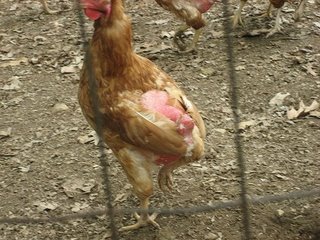
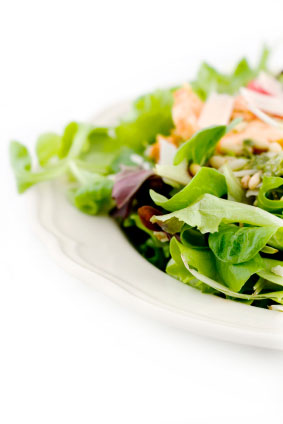

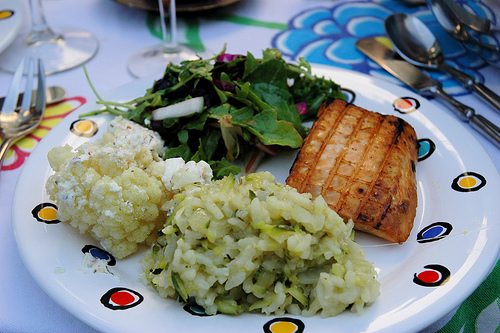

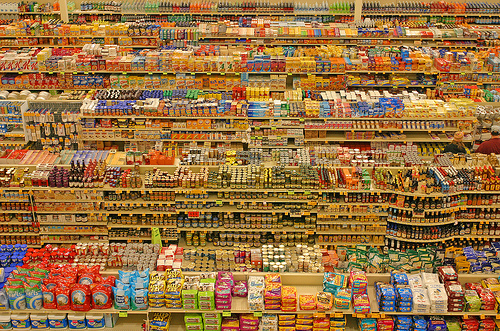
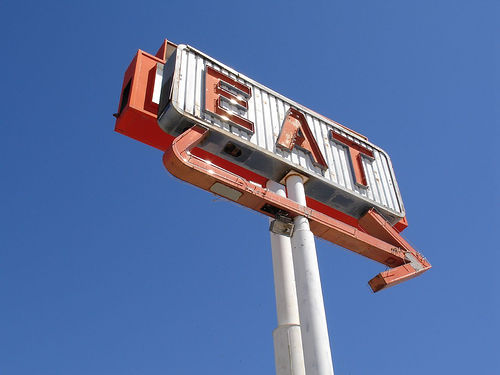
Thank you for this summary! Was hoping to make the talk and could not. Please post the video when available.
On another note, this article has several typos and misspellings, which honestly gave me pause in sharing it. I’m excited about this as a local new source, so please continue to raise the bar and do the quality control. Mahalo!
hello M, thanks for reading. Thanks for pointing out the mistakes, I have since gone back and edited– I wrote it late that night after the talk and rushed it because I was so excited to get it live and share with all the folks that missed it. aloha, Andrea